By Dr. Lucia Harcum
May 4th is an election day in Mclennan County. It is easy to believe your vote does not matter or will not count. This is incorrect. In May’s 2017 election, less than 4% of registered voters cast a vote and only 1 out of 80 McLennan county residents voted. These statistics make it easy to see that with only a very little effort, the McLennan county voters can be statistically significant in election results.
This is not an election for president, your senator, congressperson, mayor or even dog catcher. So some may be tempted to feel this is a “who cares” election. Even voters that know all about national politics have a challenging time connecting any of them to our daily lives. The fact is that everyone you know NEEDS to vote in May. This action ensures that in the future your votes are sought after, you and your family concerns are addressed, and that these issues must be considered and addressed by your elected officials wishing to remain in office and those seeking offices.
Too often entire neighborhoods do not vote because it appears to them that those running do not seem to care about what is important to their family. Yet this is a two-way street. How can an elected official seeking your vote know your wishes if they do not even know if you will vote? Why would they care about what is important to you if you have not shown them that they can count on your vote and you will vote, even in a low-controversy election? Use this upcoming election as a megaphone for the vote. The vote this election is expected to be so low that even small groups of neighborhoods that show up in mass could significantly sway all elections by an easy margin. Make your vote count; said here, is why.
Traditionally this phase in the voting cycle has an expected low voter turnout because the issues are not extremely politically charged with emotion. If you vote, all the Parties are watching and will glean as much information as possible about the voting population demographics. That information will then be used sway your future vote. Frankly this has always happened in the past. The difference today is that information is dissected via the internet and social media. It may be difficult to know or confirm the true facts. Research the information. Make an informed decision. Vote intelligently with a focus toward your desired outcome in world-wide interests, nation-wide, state, county and local government concerns or interests in the future.
This upcoming voter turnout will serve as a gauge for voter interest by the political cogs. It will notify the parties, all of them (Republican, Democrat, Libertarian, and Green), about the apathy and/or passion of all districts. It will be the base for candidate platforms and with these demographics they will statistically calculate the precinct’s potential and future viability of candidates and proposal successes.
Good news for voting. The lines will be short, and parking will be available. Voting in this election shows our elected officials (and their political planners) you’re your vote has real value. Your voice through your vote needs to be sought out, heard, and addressed by the political planners. This includes concerns about you, your family, your community, and your country in all aspects: healthcare, education, economy, jobs, etc. Also, and this is very important, the people that get out and vote will be a factor of the future election campaign because you will vote again in the future.
Your vote can easily have a significant impact on the opinion of potential new or incumbent officials and changes in laws. If you do not vote, it is assumed that you will remain one of the voiceless who simply (but stupidly) gave their voice to someone else. The projected turnout for November’s election amplifies your voice today and in the future. Use your vote as a megaphone to represent your family, your neighborhood, and McLennan County. If you are registered, vote by May 4. If you are not registered, do so NOW and your vote WILL count in the future!
Before you vote, check out the non-partisan voter guides for the elections to the Bellmead City Council and the Hewitt City Council at www.vote411.org.
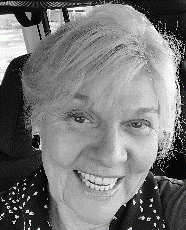
Dr. Lucia Harcum is a free-lance research writer and active member of the League of Women Voters of Waco, Junior League of Waco, Central Texas Coalition for Literacy, Central Texas Hispanic Chamber of Commerce, and is Treasurer of a local nonprofit. This article originally appeared in her weekly column, Para La Familia, published by TIEMPO, a Central Texas Spanish/English Newspaper. It has been adapted for the May 2019 publication in the Act Locally Waco blog.
The Act Locally Waco blog publishes posts with a connection to these aspirations for Waco. If you are interested in writing for the Act Locally Waco Blog, please email [email protected] for more information.
Do you walk, ride, roll, bike or drive in McLennan County? The Waco region is growing! That raises questions about how we will get to places we want to go now and in the future.
The Waco Metropolitan Planning Organization (MPO) is now receiving public comment on a draft Waco Metropolitan Area Active Transportation Plan (ATP). The ATP provides recommendations for expanding and improving the pedestrian and bicycling transportation network in the Waco Metropolitan Area through the year 2045.
For a Draft of the Active Transportation Plan, Click Here: Draft Plan.
The Waco Metropolitan Transportation Plan (MTP) outlines the broader mobility needs for the Waco Metropolitan Area through 2045. The MTP serves as the blueprint from which mobility projects to address those needs are developed.
The MPO will be conducting 2 public informational meetings to give interested persons the opportunity to view the draft ATP plan and to solicit comments regarding recommended strategies for improving pedestrian and biking conditions. The MPO also invites interested persons to help in the development of the MTP by identifying mobility challenges and sharing ideas to address them. These meetings are scheduled as follows:
- Wednesday, May 1, 2019, 12 Noon. South Waco Community Center, 2815 Speight Avenue, Waco, TX 76711 Doors open 11:30 AM. ATP presentation at 12 Noon. MTP presentation at 1 PM.
- Wednesday, May 1, 2019, 5:30 p.m. South Waco Community Center, 2815 Speight Avenue, Waco, TX 76711 Doors open 5:00 PM. ATP presentation at 5:30 PM. MTP presentation at 6:30 PM.
The MPO is accepting comments regarding the Active Transportation Plan through July 5, 2019, and the Metropolitan Transportation Plan (MTP) through 5:00 PM on May 31, 2019. Comments may be sent by e-mail to [email protected], or by mail to Waco MPO, P.O. Box 2570, Waco, TX, 76702-2570. Verbal comments will also be accepted at (254) 750-5650 between the hours of 8:00 a.m. and 5:00 p.m. Monday through Friday.
Comments should be directed to Christopher Evilia and may be submitted via the following methods:
- Email: [email protected]
- Phone: (254) 750-5650
- Mail: Waco Metropolitan Planning Organization P.O. Box 2570 Waco, Texas 76702-2570
Press release – Bankston’s in Waco is one of the thousands of comic book shops around the world celebrating the largest event in the comic book industry on Saturday, May 4th: Free Comic Book Day (FCBD)! Each year, thousands of participating stores give away over five million comic books to millions of fans to introduce them to the wonders of comics.
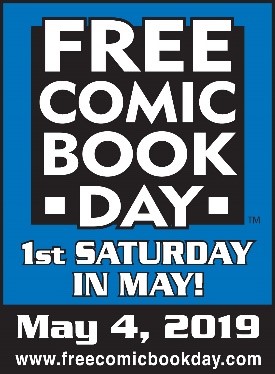
“Free Comic Book Day is a great event for the whole community. Bringing everyone together, finding books for everyone to enjoy, and seeing people of all ages—children, teens, and adults—sharing our passion for comics is incredible,” said Jeremy Root, manager of Bankston’s. “Even if you’ve never picked up a comic book, we want to welcome everyone to Bankston’s on May 4th, because there are so many amazing comics this year and we can’t wait to share them.”
This is the 18th year Bankston’s will celebrate FCBD, offering the community a fun, family-oriented event where everyone can find a comic they’ll enjoy. Bouncy Houses, DeeJay Versatile, Sidewalk Sale, FCBD Patches and this year several Music Bands.
“With awesome titles like Avengers, Tokyo Pop Disney, Riverdale, TMNT, Pokemon and others, we’re sure there’s a comic book for everyone,” Root continued. “Comics are a fun and enduring form of entertainment for readers of all ages to dive into as imagination comes to life. Whether it be popular comics, film, television shows, or video games, there’s something for everyone to enjoy.”
Regular updates, information about comic books, and a list of participating publishers and their free comics are all online at www.freecomicbookday.com.
Free Comic Book Day kicks off at 10:00am and runs until 6:00pm at Bankston’s Comics and Sportscards at 1321 S. Valley Mills Dr in Waco. Call 254-755-0070, or follow us on Facebook for more information.
ABOUT FREE COMIC BOOK DAY—Celebrating its 18th year, Free Comic Book Day is the comic book specialty market’s annual event where participating comic book shops across North America and around the world give away comic books absolutely free to anyone who comes into their comic shops. The event is held the first Saturday in May and is the perfect opportunity to introduce friends and family to the many worlds of wonder available at local comic book shops. From super-heroes to slice-of-life to action/adventure and beyond, Free Comic Book Day has a comic book for everyone!

By Glenn Robinson
When you think of patient care, doctors and nurses are usually at the forefront of everyone’s mind. However, hospitals are increasingly utilizing supplemental programs in addition to the excellent care provided by their clinical staff to fulfill their mission of caring for “the whole patient.”
This month, we take a look at three lesser-known roles in health care that are just as vital to the patient experience and road to recovery as that of a physician or nurse.
Patient Navigators
If you’re going on a long journey to somewhere you’ve never been before, the best bet to get to your destination is being aided by navigation. The care process for a terminal disease or chronic illness is often described as a journey – physical, emotional, and spiritual – so one of the ways many health systems are making the road to survivorship easier is by offering patient navigation.
A patient navigator is a partner for patients and families from the time of the initial diagnosis and throughout their journey – wherever that may lead. A patient navigator strives to help patients make decisions and find their way through the complexities of the healthcare system so they can focus on recovery.
Navigators connect patients with resources and information to help them better understand their diagnosis and treatment options. They can also help remove barriers, whether they be financial or practical – like transportation to and from appointments.
Additionally, patient navigators serve as personal advocates to help ensure patients are receiving high quality care and have all the answers they need… even if it means challenging the status quo.
Another critical job of a patient navigator is to provide emotional support. Patients sometimes have a hard time expressing their fears and sadness even to their closest loved ones, so a navigator can be that listening ear.
On the road to survivorship, to some patients, the help and support navigators provide may be as important as the caregivers delivering the treatment.
Community Health Workers
Community health workers have emerged as an effective strategy in engaging patients and caregivers in lowering costs for healthcare’s “frequent flyers” – patients who often visit emergency rooms and fill hospital beds.
Community health workers have been part of healthcare worldwide for decades. They generally are not doctors or nurses, and often are recruited directly from the communities they serve. Their purpose is to help individuals navigate the healthcare system, manage chronic illnesses more effectively, and access preventive care.
They also help patients tackle important health-related issues such as food and housing insecurity. Community health workers often serve people in impoverished communities who lack access to quality healthcare, lack the means to pay for healthcare, do not speak English fluently, or have cultural beliefs, values, and behaviors that differ from those the traditional U.S. healthcare system is geared towards.
New research suggests these workers may contribute to fewer days in the hospital for some patients. Patients with help from a community health worker were nearly twice as likely to report receiving high-quality primary care and spent fewer total days in the hospital.
Recognizing the value of these individuals, the Texas Department of State Health Services has a community health worker certification program to develop these dedicated individuals’ communication and navigation skills, as well as their knowledge of available community resources.
Though typically not clinicians or administrators, community health workers are playing an increasingly important role in healthcare quality and cost.
Volunteers
Often known as candy stripers in the past, today, hospital volunteers are a diverse group of men and women of all ages who perform a wide range of functions.
Volunteers are vital members of the community and the hospital team who share their time, talents, and passion for helping others, while either directly or indirectly making a difference in the lives of patients and families.
There are many different roles for hospital volunteers. Some oversee the hospital information desk and provide directions and a warm smile to patients and visitors. Others deliver flowers and packages to patients, run the gift shop, or perform a full range of back-office administrative tasks so other staff can keep their focus narrowed in on patient needs.
Many hospitals also have special volunteer programs. For example, pairing former patients who have successfully overcome a serious condition, such as heart disease or cancer, with patients who are now on that same journey. Or even more innovative programs like volunteers who share their musical or artistic talents with patients as a form of therapy. There are even animal-assisted therapy volunteer programs at some hospitals in which four-legged volunteers join their two-legged team members to bring smiles to patients’ faces.
Programs like these have been shown to raise the spirits of patients and can contribute to a better patient experience. But volunteers also benefit. Research has demonstrated that volunteers are often healthier, happier people.
Hospital volunteers truly create a win-win-win situation – for themselves, for patients, and for the hospital.
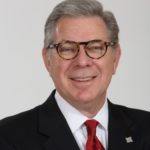
Glenn Robinson is the President of Baylor Scott & White Medical Center – Hillcrest. He has over 30 years of experience in hospital and health care management, and currently serves on several Boards associated with the Texas Hospital Association and the American Hospital Association. In addition, Glenn is Past-Chair and an active member of the Greater Waco Chamber of Commerce, and serves on the Prosper Waco Board.
The Act Locally Waco blog publishes posts with a connection to these aspirations for Waco. If you are interested in writing for the Act Locally Waco Blog, please email [email protected] for more information.
Top 10 “Most Opened” Blog Posts of 2019: # 10
By Michael Jeter
Sometimes part of my job is making kids cry.
No, it’s not in my job description, but making kids cry comes with the territory of overseeing STARS Book Clubs, a mentoring and literacy initiative focused on empowering members of churches in Waco to serve the schools around them. My latest victim was Jose.
For several weeks, Jose and David, two second-grade boys, had been participating in a STARS Book Club. Their mentor, a stay-at-home mom, would come to their school once a week during their lunchtime, where they’d talk, eat, and practice reading books aloud together.
“I’m sorry buddy, but your mentor can’t come to Book Club today- her son is sick,” I told Jose, as he chose between chicken nuggets and burritos in the cafeteria lunch line.
I didn’t really think it would be that big a deal if Jose missed a week – he had only recently started Book Club, and I doubted he even remembered his mentor’s name. However, as I saw his face scrunch up as he (unsuccessfully) tried to hold back tears, it hit me again: We rarely realize just how much a caring, consistent adult can impact a child.
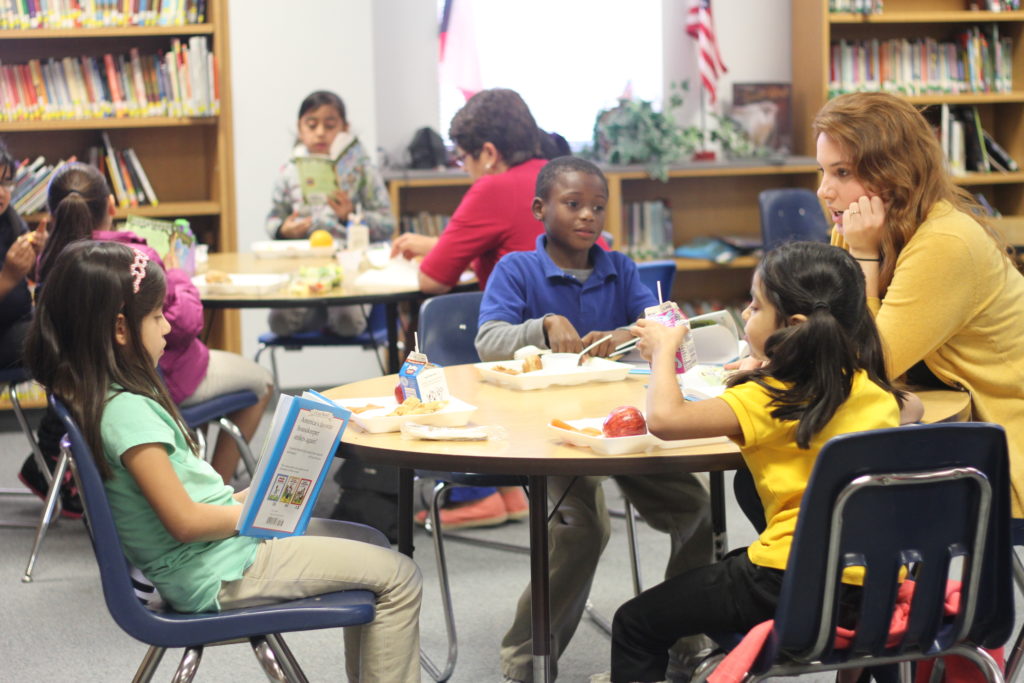
Research has shown that every child needs at least one stable, committed, supportive adult in their life to end up doing well, and the children of our city are no exception. Many students in Waco are facing serious challenges, from poverty and parent incarceration to bullying and depression. A Book Club mentor coming every week who believes in you, laughs with you and encourages you can be a much-needed emotional support for many students. For others, the chance in Book Club to grow in reading ability, reading confidence, and a love of reading is just the help they need.
That help isn’t just a nice thing to do- it’s a crucial intervention as our nation, state and city are in a serious literacy crisis. Two-thirds of all fourth-graders can’t read on grade level. Third-grade students who can’t read on level are four times more likely to drop out of high school, and if they’re also in poverty, they’re 13 times more likely to drop out. Without a high school diploma, the probability of everything from future incarceration to joblessness skyrockets. Even for those who manage their way through high school, a poor reading foundation limits chances of further education or training, good employment, and a living wage.
In the face of these statistics, we’re seeing an unprecedented movement of 600 people from 35 churches in Waco joining together to serve the students of our city through Book Clubs! And as we and local businesses and organizations add our efforts to all that teachers and parents are doing, we are starting to see reading scores improve and brighter futures open up for hundreds of students. Currently our Book Club volunteers meet with more than 1,400 students in Waco every week, another 200 Highland Baptist volunteers read one-on-one with students every week, and hundreds of other volunteers from our city are serving students through similar initiatives. (To financially sustain this amazing growth of Book Clubs, we’re holding a fundraising Gala on April 29th– we’d love to see you there!)
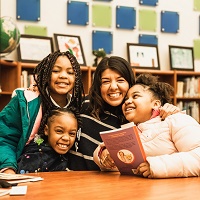
In the Bible, the book of James says, “Show me your faith without deeds, and I will show you my faith by my deeds” (James 2:18b). Volunteers across Waco are putting their faith in action through Book Clubs, loving their neighbors by helping them to succeed in school and in life. So yes, sometimes I have to bear bad news that will make kids cry, but it’s far outweighed by the joy of seeing greater equity, opportunity and hope grow in the next generation of our city.
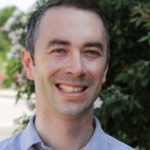
Michael Jeter works for the STARS Mentoring Project at Antioch Community Church. He is a Virginia native who found the kind of community in Waco that’s caused him to make this city home for almost a decade. He and his wife and daughter are excited to meet their newest addition to their family next month!
The Act Locally Waco blog publishes posts with a connection to these aspirations for Waco. If you are interested in writing for the Act Locally Waco Blog, please email [email protected] for more information.
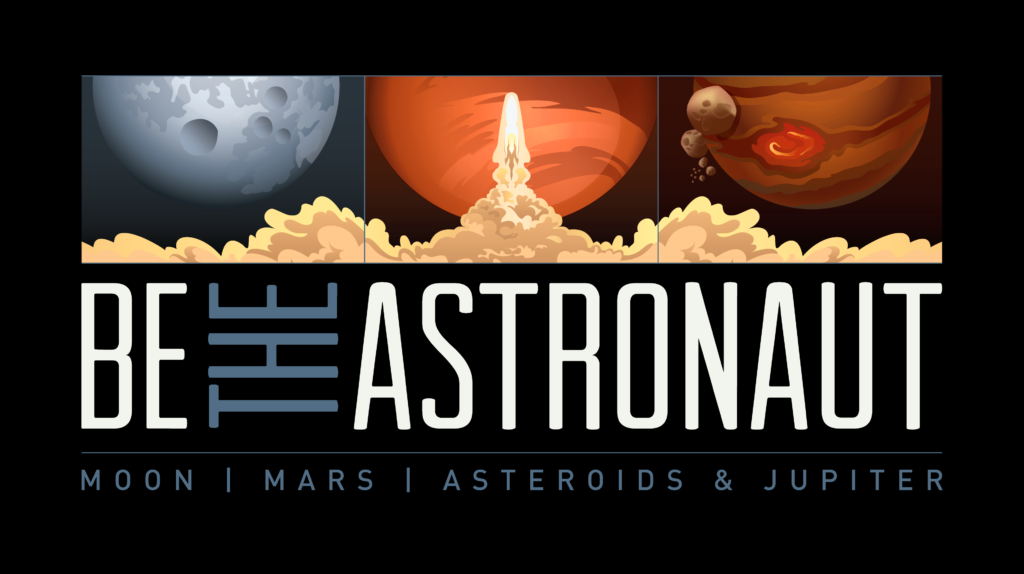
Waco, TX—Prepare for lift off and discover what space travel is all about when the Be the Astronaut exhibit opens May 25 at Baylor University’s Mayborn Museum.
Experience the wonders of space and plan a space mission, learn about the technology and math skills required to be an astronaut and fly spaceships, pilot landers and drive rovers in this exciting exhibit.
“It is our hope that children can come here and let their imagination soar,” said Charles Walter, director of the Mayborn Museum. “This exhibit will include several dramatic interactive stations that will allow them to learn basic concepts about our solar system, space travel, gravity and more.”
Produced by Eureka Exhibits and designed by NASA engineers, the exhibit aims to put students in the pilot’s seat of a spaceship while providing a birds-eye view of real astronaut pretraining with the use of touch screen stations, artifacts and interactive simulator pods built to look like space capsules.
“This exhibit is designed to not only educate visitors on the reality and
challenges of space travel,” said Walter, “but hopefully inspire a new crop of budding scientists to consider viable career paths in science and technology-related fields that will help shape our nation’s future.”
During this exhibit, visitors will be invited to interact with:
- Navigation Interactive Stations- where visitors can engage in mission planning as well as learn about orbits and Newton’s laws, gravity, etc.
- Science Interactive Stations– where visitors can explore the equipment and technology needed to accomplish space travel missions and learn about rockets, space suits and space craft.
- Flying Capsules- a dramatic big screen experience with pilot and co-pilot adjustable seating and controls. Visitors can launch rockets and land rovers depending on their given mission requirements.
- Space Suit and vintage space toy displays
The Be the Astronaut exhibit will be on display at the Mayborn Museum from May 25 to Sept. 8. Entry into the exhibit will be included with general museum admission. Ticket prices are free for Baylor students and members, while tickets for non-members are $8 for adults, $6 for children ages 2-12 and $7 for seniors.
About the Mayborn Museum
The Mayborn Museum Complex at Baylor University provides a wide spectrum oflearning opportunities to engage visitors of all ages.
The exhibits and education programs encourage families to learn together and design their own museum experience. This complex features a natural science and cultural history museum focusing on Central Texas with walk-in dioramas including one of the Waco Mammoth Site. The Mayborn Museum Complex also encompasses a multi-floor science discovery center encouraging hands-on learning for all ages and the Gov. Bill & Vara Daniel Historic Village. The nine wood frame buildings that comprise the village provide a glimpse into the past, bringing to life a community in the 1890s.
The museum’s hours are: Monday-Saturday 10 am- 5 pm
Thursday 10 am-8 pm
Sunday 1 pm-5 pm
The museum is located at 1300 S. University Parks Drive, Waco, Texas 76706. For more information, call 254-710-1110 or visit www.MaybornMuseum.com.
By Robert William Marshall

Every third Thursday, officers of one of Waco’s most secretive organizations gather in the Saloon at 5th and Austin to engage the public in a sort of information session. The longest existing organization of any kind in McLennan County, Waco Masonic Lodge, decided to start these sessions to counter misinformation that has grown rampant in recent years. “Freemasonry: Facts and Fiction” is an opportunity for the public to ask questions about freemasonry, its impact on Waco history, and it current activities in the community. Some of Waco’s biggest names were members of the lodge: Sul Ross, Pat Neff, Lehman Sanger, Roger Conger, et al. Even the inventor of Dr Pepper, Charles Alderton, once spent a year as the leading officer of the Waco Masons.
Freemasonry is a fraternal system of philosophy and charitable efforts with two goals: 1. Improve the community and 2. Improve one’s self. Many conspiracy theories have abounded through the years regarding the secretive nature of the Masons and Waco Masonic Lodge is using the Backyard Saloon as a neutral ground venue to let people discuss those theories with real Masons who can share the truth. Currently, more than 500 of the Waco area’s leading citizens are Masons. Many of them have differing views on politics and religion but have found a way through the lodge’s teaching to come together in brotherhood and work towards a greater good. The Masons have given thousands of dollars in scholarships over just the past few years. Historically, they contributed in many ways to the community.

It was the Masons who originally built and owned the Suspension Bridge, laid the cornerstones or served as architects for most of Waco’s historic churches, donated land that became Cameron Park, and many other activities that have continuously benefited the Heart of Texas community. Several Waco Mayors, three Texas governors, Waco history’s most important photographer, and a few famous sports figures are found on the old membership rolls of Waco Masonic Lodge. Even the “Father of Waco,” George Erath, whose statue stands in front of the Texas Ranger Hall of Fame & Museum, was a San Jacinto veteran and charter member of Waco Masonic Lodge. In the early 1900s, the Lodge was successful in attracting the governing body of Texas Masons which is still located in Waco on Columbus Avenue today. Known as the Masonic Grand Lodge of Texas, the stupendous edifice houses a museum dedicated to those who died in WWII. It is open to the public five days a week and affords Wacoans the opportunity to see such artifacts as Sam Houston’s handgun or a lock of his hair, a flag that flew during the bombing of Pearl Harbor, and even items that belonged to Nazi German soldiers. There is also a 2,000 person auditorium that is available for rent as well as a library containing many early Waco books and manuscripts.
Though they peaked at a quarter million in the 1960s, the Masons of Texas still number 70,000 today. The Texas Masonic Charities Foundation enables millions of dollars of giving to local students and other worthy causes while the Masonic Hospitals(Scottish Rite and Shrine) provide medical care to needy children.
The relationship between Waco Masonic Lodge and the Saloon began at its sister venue, The Backyard, a couple years ago with the annual Waco Masonic Concert. This event has enabled the public to join the lodge in supporting Waco ISD students on their way to college and have fun while doing it! It was originally organized by current lodge leader Dave McHam and historian Robert Marshall and takes place during the annual statewide Masonic convention held here in Waco every January while 3,000 Masons are in town.
So, maybe your grandfather was a Mason and you want to know what that really means. Or, perhaps, you saw the film “National Treasure” and are curious about just how influential Freemasonry was in the formation of our country. Maybe you just want an excuse to meet some new people. Whatever the case, consider joining Waco Masonic Lodge at the Saloon every third Thursday night. You shouldn’t go expecting to learn all the secrets, though, and make no mistake about it. According to lodge historian Robert Marshall, there are secrets. “We certainly have secrets. It is well known that we have secret handshakes and passwords and the like. We even have secret catechisms meant to train new members in the ancient art of Freemasonry. While you won’t be learning any secrets at the Saloon, you can find out more about what the secrets are and, more importantly, what they are not.”
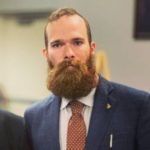
Robert William Marshall is a 7th generation Wacoan whose 1800s ancestor worked as a tollkeeper on the Suspension Bridge. He graduated from Robinson High School in 2008, Baylor University in 2012, and has been an officer of Waco Masonic Lodge for 10 years.
The Act Locally Waco blog publishes posts with a connection to these aspirations for Waco. If you are interested in writing for the Act Locally Waco Blog, please email [email protected] for more information.
By Amy Jimenez, Cove Board Member
I was busy rushing around the hallways of the Cove adding last minute touches to the decorations for our first Annual Alumni Dinner. The Cove staff, board members, and volunteers had worked hard to make the Cove feel special to welcome home our Cove Scholars who graduated the past two years. Our theme was “Welcome Home,” a homecoming of sorts, and we hoped the night would feel just that for our students: like home.
He walked through the door a few minutes early, and to me, it was Deja vu. He was home. He was our first student ever to walk through the doors of the Cove on the first day it opened in October 2016. He was the same student whose eyes lit up at the Marvel art on the walls and said, “This place is for me?”
He jumped right in to help me put the silverware and napkins on the table. I yelled his name in excitement and he just smiled and said that not much had changed. He shared that he was trying to survive college and that it was a lot harder than he ever thought it would be. I encouraged him that he was already 3/4th of the way of finishing his first year, that in itself is a huge accomplishment. Not everyone makes it that far.
The other students began to pour in. They immediately found their spots and rhythm as though time had not even passed. The hallways filled with laughter and chatter, as old and new volunteers, staff, and students reminisced.
Current Cove Scholars lovingly decorated a Welcome Home sign that sprawled the dining room entrance. Our graduates admired it and asked how certain students were doing.
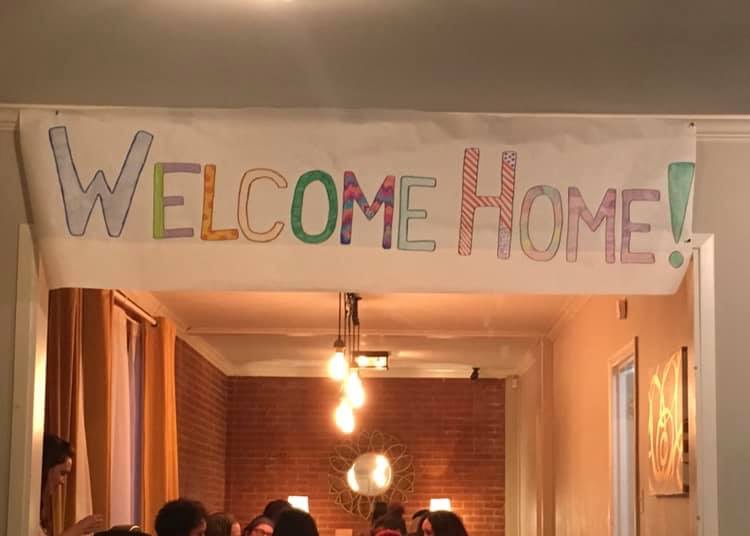
The Cove is a nurturing center for youth experiencing homelessness. Our goals are to ensure students have the opportunity to thrive. In Waco ISD, approximately 1,000 students were identified as homeless in the 2017-2018 school year. 335 of those students were in high school, and at least 1/3 of them were unaccompanied, which means they were not living with their parent or legal guardian. What does this mean?
It means many of our students are experiencing homelessness on their own. They are couch surfing—staying place to place—but are still attending school and trying their best to graduate. They are missing the adult support at home to encourage them to show up to class, do their work, and make it across that stage at graduation. That is where the Cove comes in.
The Cove offers a safe environment Monday through Thursday, 4 – 8pm, for students to access showers, mental healthcare, case management, a family-style dinner, healthy snacks, an optional workout program, washer/dryer, tutoring services, educational programming through community partners. The Cove is filled with loving, caring adults that want to ensure our students have every opportunity to finish high school and become thriving adults. The past two years, we have seen 31 of our Cove Scholars graduate from high school and enter into adulthood prepared to succeed.
At our Alumni Dinner, the warmth that filled the room brought to mind every person in our Waco community who has committed their love to the Cove. Every dinner made, every hour tutored, every dollar donated, every Uno game played—these were the memories students rattled off, and these commitments have changed the course of our students’ lives. I am thankful for a community like ours, who comes alongside our most vulnerable community members and gives them care, opportunity, value, and empowerment. The deep connections that are built here change the trajectory of all our lives, and I believe Waco is better for it.
Haven’t been to the Cove? We would love for you to schedule a tour! Also, please consider donating. Your commitment will impact students by providing a safe place for them this summer, as well as all throughout the year!
The Cove is currently seeking volunteers this summer so we can be open to meet the needs of our students. The Cove will be open June-August from 12pm-4pm, so our students can have a safe place to be, catch up on school work or prepare for STAAR tests or college entrance exams, and to have access to the important resources they need. If you would like to support the work at the Cove, please visit www.thecovewaco.org.
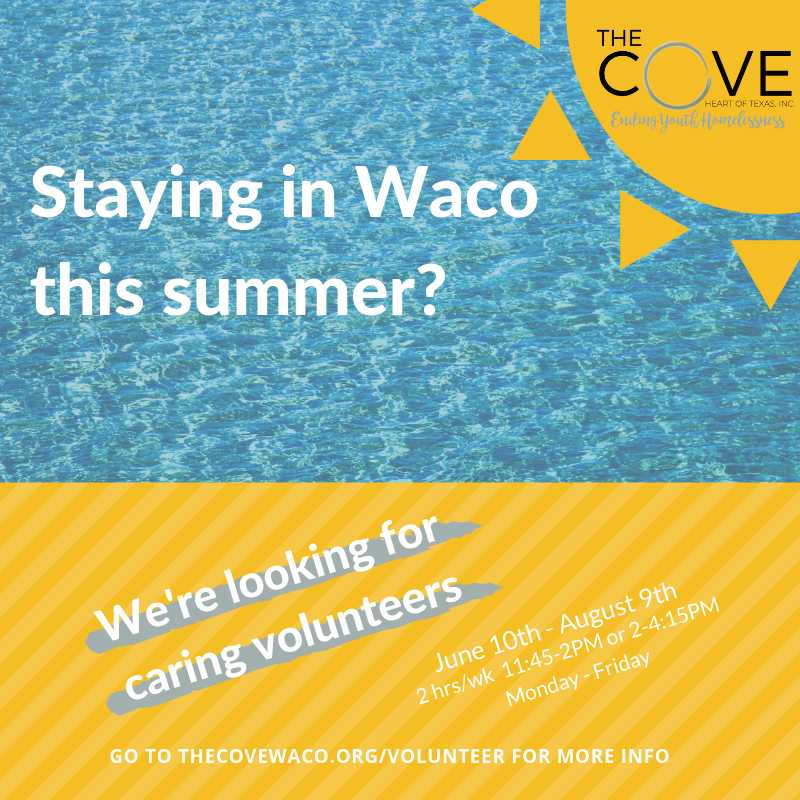
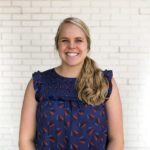
Amy Jimenez is a community member of Waco and lives with her family in the Brookview neighborhood. She is a licensed social worker with Waco ISD who proudly works alongside youth who are experiencing homelessness. She serves on the board of the Cove, alongside many in our Waco community who devote their time, love, and expertise to ensure students have the opportunity to thrive. She is a proud wife, Baylor Bear, follower of Jesus, and is loving her new role as a first-time mom.
By Nathan Embry
Lemonade Day is coming! We are well underway, working with the enthusiasm and energy that this ambitious program deserves.
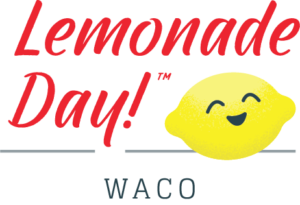
For those of you who are not yet familiar with Lemonade Day, it is program that encourages kids to become entrepreneurs by creating their very own small business: a lemonade stand. The program started in Houston in 2007 and has grown from serving 2,700 kids in one city to involving 1 million children across North America – including Waco! This year we are thrilled to have well over 100 kids participating.
Kids in all parts of Waco have the optimism and energy to become successful entrepreneurs. Through the Lemonade Day program, parents, teachers and mentors sign up to guide kids through lessons that help turn that optimism and energy into business success.
They begin by teaching students to have a dream and vision, then create a business plan, and finally, they execute the plan by building and running a real Lemonade Stand on Lemonade Day – May 4!
The curriculum has many exciting aspects that we love to talk about:
1. It encourages the kids to find business partners, or investors, to invest in their lemonade stand. They ask for loans to get started and are expected to pay the investors back.
2. Kids need to pick a spot for their stand in Waco. This allows them to discover real-life lessons in real estate, like traffic counts and commercial areas of the city.
3. The book the kids receive talks about budgeting, income, expenses, and goal setting.
These basic business lessons plant the seeds for kids to start thinking of themselves as entrepreneurs when they get older.
Another awesome part of this program is that it teaches kids to save and give as well as to spend on themselves. Students research then select a nonprofit they want to support. They are encouraged to donate a portion of their profits to that charity.
On a micro level, we know the program is working. The kids that participate love the idea of making their own money and being the boss of their company for a day. Studies from previous years show participants improving in problem-solving by 82%, self-esteem by 84% and major improvement in communication skills by 86%!
We currently have 115 kids registered. Many of the kids are working in groups, so we will have around 30 lemonade stands spread out around Waco on May 4. If you want to help, there are several ways you can get involved:
Participate – Would your kids or a kid you know like to participate in Lemonade Day? Registration is nearing the end for this year, but a few slots are still available. If it’s too late for this year, consider signing up for next year. Contact me for more information by emailing Nathan Embry at [email protected].
Donate – Donations can be made to this local effort that will go only to the Waco Lemonade day, and Waco kids. Contact me for more information by emailing Nathan Embry at [email protected] .
Enjoy some Lemonade! – The most important way you can support Lemonade Day and Waco’s young entrepreneurs is to shop Lemonade Day! On May 4, find a lemonade stand in Waco and spend a few dollars on some lemonade. They can only count the money they earn.
This year we are lucky to have several sponsors that believe in the youth of Waco and want to see this program succeed. Local companies like Texas First State Bank, H-E-B, Canes Chicken, Baylor University, Stiba Wealth Management, KWTX, The Greater Waco Chamber of Commerce, Stan Parker, the Northwest Optimist Club, Watermill Express, and Lemy’s Soft Freeze Lemonade have donated time, money or services for this to be a success.
We are off to a great start. With so many talented kids in all parts of Waco, there is great potential to bring this fun educational program to many more people in the coming years. With your help this year on May 4, we know we will see many young entrepreneurs running successful businesses all across Waco.
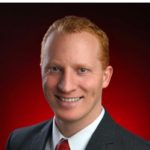
Nathan Embry is the City Director for Lemonade Day and works in commercial real estate. He has lived in Waco for 11 years and hopes to never leave. He faces each day with his best friend/wife, Emily (Toots). Together they do the best they can raising two children, Reagan and Madison. You might find the Embry’s serving on city boards, feeding the homeless, helping tourists downtown, and patronizing local businesses.
The Act Locally Waco blog publishes posts with a connection to these aspirations for Waco. If you are interested in writing for the Act Locally Waco Blog, please email [email protected] for more information.
By Anna Dunbar
Gaylord Nelson, a U.S. senator from Wisconsin and a longtime conservationist, was the one who decided to have an environmental celebration in the spring of 1970. After his announcement, the energy started spreading across the US (without social media!) and ten thousand grade schools and high schools, two thousand colleges, and one thousand communities were involved in that thing that became Earth Day. I recall pretty vividly cleaning up my high school on Earth Day in 1970. We did things like parking lot and curb sweeping and cleaning windows, and it started me down a path that I continue on today!
Over the decades, the spirit of Earth Day has risen, fallen, and risen again. In the US, we began to separate our household trash from recyclables in the 1990’s and early 2000’s. The City of Waco began curbside recycling with a paper collection in 2000. Many Waco companies like Coca Cola, M&M Mars, and Allergan have adopted zero waste or waste reduction and green business practices. Schools and churches have jumped in with efforts to send less waste to the landfill.
Here is what you can do to celebrate Earth Day Monday and every day in Waco:
Pop-Up Saturday: Earth Day, 4/13/2019
Time & Place: Dr. Pepper Museum & Free Enterprise Institute 300 S 5th Street Waco, TX 76701 11 am – 2 pm

Description: Celebrate Earth Day at the Dr. Pepper Museum by making your own Chia pet out of a recycled plastic bottle! You can then take this resourceful craft home to nurture and grow your own Chia pet. This activity is free with general admission and will be located in the Museum courtyard.
On the Web: drpeppermuseum.com/calendar/
Crafty Adults: Upcycled Book Bracelet, 4/13/2019
Time & Place: West Waco Library 2:00pm – 3:30pm
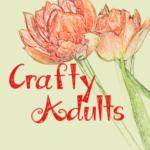
Description: Recycled materials make great jewelry if you put them together just right. Take old book pages, beads and other supplies and make an amazing bracelet. We’ll have everything you need, but if you want to use your favorite book page, bring it with you. Space and materials are limited, so register online.
On the Web: https://calendar.wacolibrary.org/event/5127643
Drug Take-Back Day
On Saturday, April 28, from 10 Am until 2 PM, take this great opportunity to get rid of unwanted and expired drugs in a safe and secure manner.
Please no needles, inhalers, aerosol cans, hydrogen peroxide, or thermometers.
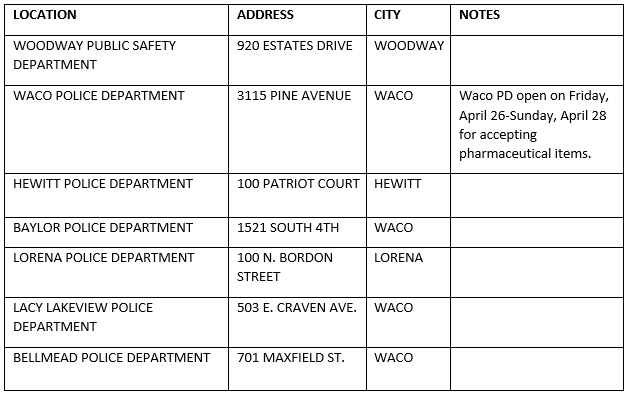
Worm Composting Class!
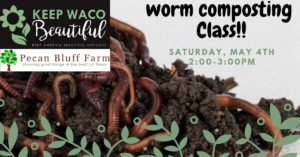
Keep Waco Beautiful and Pecan Bluff Farms are teaming up to teach you how you can start harvesting and creating your own compost with Red Wigglers. The class will include all the materials to take home including the worms and a “How to” packet to take with you for your future reference! Sign up today because there are limited slots! Class fee is $20.
Saturday, May 4, 2019 at 2 PM – 3 PM; sign up at https://www.facebook.com/events/1434941893306921/
Do the Blue and Green in Waco!
One or two blue curbside recycling carts and one green yard waste cart are included in the City of Waco monthly curbside trash service fee paid by Waco residents.
- To get a blue cart for recycling and a green cart for yard waste, go to Waco-texas.com and complete a request form on-line.
- You can also call the Solid Waste Services main office at (254) 299-2612 on Monday through Friday from 8 AM until 5 PM.
- You can also sign up online fir a blue or green cart at: waco-texas.com or http://waco.coffeecup.com/forms/Solid%20Waste%20Carts/
- Para informacion en Espanol – (254) 299-2612
Freon containing appliances are banned from landfill disposal and cannot be recycled until the Freon has been removed. Waco residents can get the Freon removed at the landfill or the Cobbs Recycling Center for a $15 fee per appliance. Appliances will be recycled after removal of the refrigerant. Anyone from anywhere can also take Freon containing appliances to the Waco landfill for a fee.
You CAN recycle glass bottles and jars!
At the Cobbs Center, anyone from anywhere can bring household recyclables, including metal containers, plastic containers, cardboard, paper and glass containers to the Cobbs Citizen Convenience Center (Recycling Center). The Cobbs Recycling Center is at 2021 N. 44th Street (between Cobbs Drive and Trice Avenue) on Tuesday through Saturday from 8 AM until 5 PM.
Don’t forget to protect our water quality!
According to a Keep America Beautiful study, storm drains are one of the most littered areas. Cigarette butts, wrappers, and other litter accumulate in or around storm drains, located primarily in gutters and designed to drain rain from streets, parking lots, and other paved surfaces. The storm water, which runs off during and after a rain, goes into the storm drain and then through pipes, channels, drainage ways and ditches. The stormwater carries litter from the curb with it.
While walking the dog or visiting a park, take a bag for doggie doo and a bag for litter too! You can recycle plastic bottles and aluminum cans that you find.
Find like-minded people and organize a clean-up. Keep Waco Beautiful can help with supplies for that activity.
Resources
Finally, I hear that there is so much to remember and it’s so confusing! I want to remind everyone that there are resources out there to help you:
- Waco-texas.com is the City of Waco website.
- Waco Solid Waste customer service is at (254) 299-2612.
- Waco Cobbs Citizen Convenience Center is at (254) 751-8536.
- City of Waco Landfill is at (254) 299-2620.
- To report illegal dumping, please call (254) 299-2611.
- Keep Waco Beautiful (KWB) is a local affiliate of Keep Texas Beautiful and has fantastic educational and volunteer opportunities available. KWB is at (254) 339- 1077 from 10 AM until 2 PM on Monday through Friday. You can also contact kwacob at [email protected]
Thank you for all you do to keep Waco clean and green!
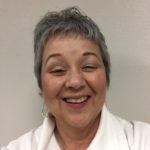
Anna Dunbar is the Environmental Program Manager for the City of Waco Public Works. She is responsible for informing Waco residents and businesses about recycling and waste reduction opportunities as well as solid waste services in Waco. Her husband is a Baylor professor and her daughter is a Baylor University alum who works at Horizon Environmental Services, Inc. Anna is an active member of Keep Waco Beautiful and The Central Texas Audubon Society.
The Act Locally Waco blog publishes posts with a connection to these aspirations for Waco. If you are interested in writing for the Act Locally Waco Blog, please email [email protected] for more information.
